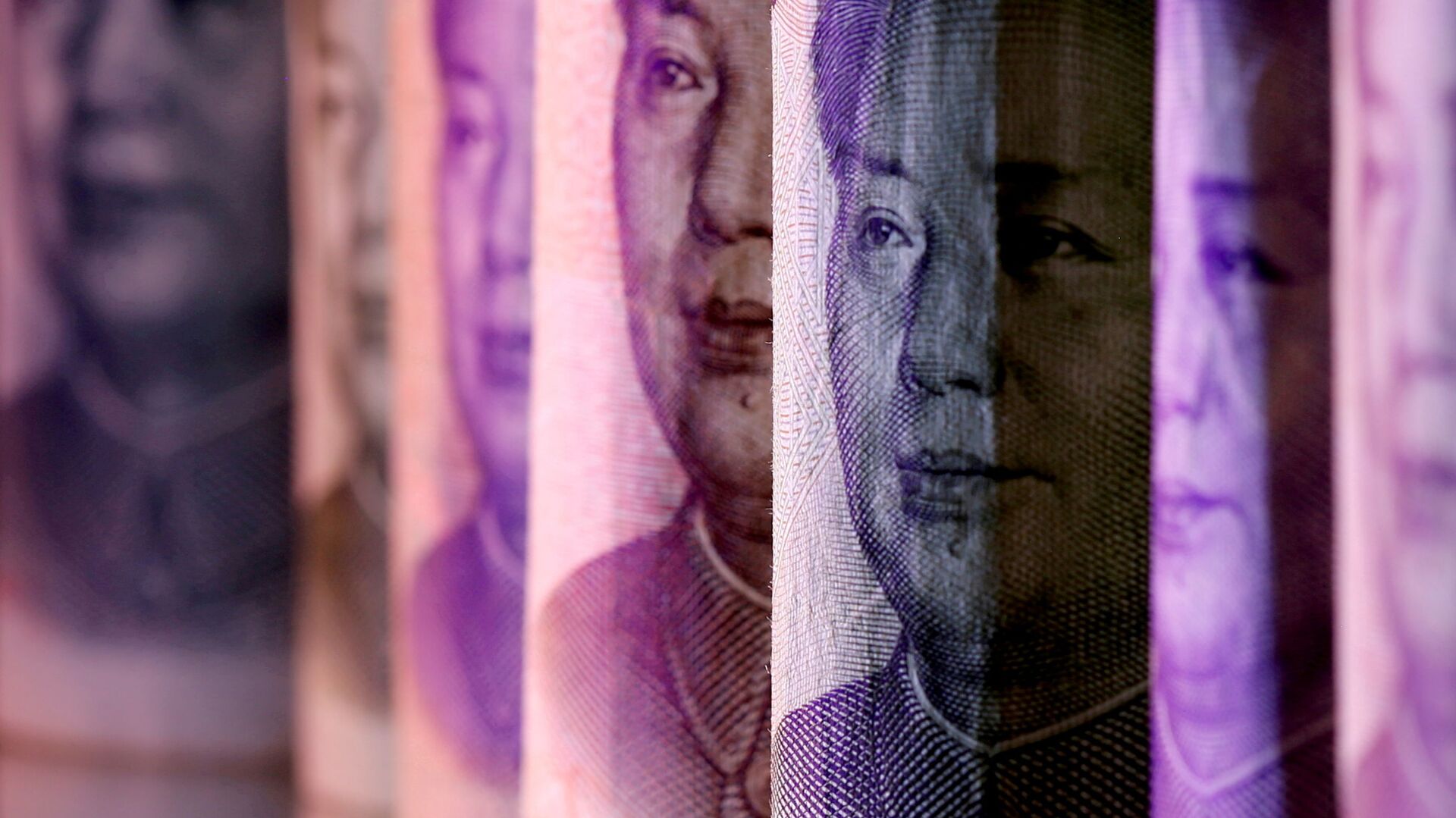https://sputnikglobe.com/20220207/economists-slam-chinas-hidden-credits-for-countries-that-are-high-risk-borrowers-1092827253.html
Economists Slam China's 'Hidden' Credits For Countries That Are High-Risk Borrowers
Economists Slam China's 'Hidden' Credits For Countries That Are High-Risk Borrowers
Sputnik International
Beijing's practice of issuing credits for infrastructure projects in developing countries has long attracted criticism from some nations in the West. They... 07.02.2022, Sputnik International
2022-02-07T16:21+0000
2022-02-07T16:21+0000
2022-02-07T16:21+0000
asia
china
credit
https://cdn1.img.sputnikglobe.com/img/07e5/07/1a/1083461200_0:249:2756:1799_1920x0_80_0_0_3e44f3fc200c64da5d41b240d8e0e526.jpg
China's practice of issuing credits to the governments of developing countries has led to an increased debt burden for them as well as to numerous "hidden defaults", economists at the World Bank and Kiel Institute for the World Economy said in their recent paper.The authors of the research have described the defaults on the Chinese by state banks as "hidden" not only because the terms under which they are issued are cloaked in confidentiality but also because the process of restructuring (triggered by defaults) is opaque and its conditions remain mostly hidden to a larger public.The economists have made their own calculations to determine the number of defaults and the volume of debt burden experienced by developing economies that used Beijing's offer of financial assistance.Despite the credits being issued under such conditions, the Chinese lending programme has offered certain benefits: it has enabled countries - which would otherwise have been deemed high-risk borrowers by institutions such as the World Bank or the International Monetary Fund - the chance to borrow money for infrastructure development.The researchers, led by Professor Christoph Trebesch from the Kiel Institute, claimed that the number of defaults on Chinese credits exceeds the number of those experienced by borrowers with the Paris Club - 71 versus 68 cases. They also believe that as much as 50 percent of the credits issued by China are not reflected in the official debt statistics because of the secrecy which surrounds the loan terms.More Problems Looming for Borrowers of Chinese Credits?The economists also flagged up another issue with Chinese credits - instead of reducing the number of credits during restructuring, lenders mostly tend to change the conditions on the interest payments and delay them. This was largely the approach practised by western lenders in the Eighties and it led to nations becoming overburdened with credits and prevented them from paying out.Trebesch and his two colleagues from the World Bank warned that, even though China's lending spree has passed its peak, the problems for its borrowers might still be waiting with more defaults on the horizon.Western countries have long expressed their concern with Beijing's practice of lending money to the developing countries, claiming that China was essentially buying political influence in these states making them dependent on its stance in international matters. Beijing has strongly rejected these claims.
china
Sputnik International
feedback@sputniknews.com
+74956456601
MIA „Rossiya Segodnya“
2022
Tim Korso
https://cdn1.img.sputnikglobe.com/img/07e6/03/0d/1093831826_0:0:216:216_100x100_80_0_0_e3f43a960af0c6c99f7eb8ccbf5f812c.jpg
Tim Korso
https://cdn1.img.sputnikglobe.com/img/07e6/03/0d/1093831826_0:0:216:216_100x100_80_0_0_e3f43a960af0c6c99f7eb8ccbf5f812c.jpg
News
en_EN
Sputnik International
feedback@sputniknews.com
+74956456601
MIA „Rossiya Segodnya“
Sputnik International
feedback@sputniknews.com
+74956456601
MIA „Rossiya Segodnya“
Tim Korso
https://cdn1.img.sputnikglobe.com/img/07e6/03/0d/1093831826_0:0:216:216_100x100_80_0_0_e3f43a960af0c6c99f7eb8ccbf5f812c.jpg
china, credit
Economists Slam China's 'Hidden' Credits For Countries That Are High-Risk Borrowers
Beijing's practice of issuing credits for infrastructure projects in developing countries has long attracted criticism from some nations in the West. They claim that China is exerting political pressure on these countries via the issued credits despite denials from Beijing and the beneficiary states.
China's practice of issuing
credits to the governments of developing countries has led to an increased debt burden for them as well as to numerous "hidden defaults", economists at the World Bank and Kiel Institute for the World Economy said in their recent paper.
The authors of the research have described the defaults on the Chinese by state banks as "hidden" not only because the terms under which they are issued are cloaked in confidentiality but also because the process of restructuring (triggered by defaults) is opaque and its conditions remain mostly hidden to a larger public.
The economists have made their own calculations to determine the number of defaults and the volume of debt burden experienced by developing economies that used Beijing's offer of financial assistance.
Despite the credits being issued under such conditions, the Chinese
lending programme has offered certain benefits: it has enabled countries - which would otherwise have been deemed high-risk borrowers by institutions such as the World Bank or the International Monetary Fund - the chance to borrow money for infrastructure development.
The researchers, led by Professor Christoph Trebesch from the Kiel Institute, claimed that the number of defaults on Chinese credits exceeds the number of those experienced by borrowers with the Paris Club - 71 versus 68 cases. They also believe that as much as 50 percent of the credits issued by China are not reflected in the official debt statistics because of the secrecy which surrounds the loan terms.
More Problems Looming for Borrowers of Chinese Credits?
The economists also flagged up another issue with Chinese credits - instead of reducing the number of credits during restructuring, lenders mostly tend to change the conditions on the interest payments and delay them. This was largely the approach practised by western lenders in the Eighties and it led to nations becoming overburdened with credits and prevented them from paying out.
Trebesch and his two colleagues from the World Bank warned that, even though China's lending spree has passed its peak, the problems for its borrowers might still be waiting with more defaults on the horizon.
"History has shown that debt overhang can only be resolved through deep debt relief, meaning a reduction of debt burdens and interest rates. Should Chinese lenders repeat the errors of previous eras, a decade of recurring payment problems and serial debt rescheduling on China’s loans may lie ahead", the research paper said.
Western countries have long expressed their concern with Beijing's practice of lending money to the developing countries, claiming that China was essentially buying political influence in these states making them dependent on its stance in international matters. Beijing has strongly rejected these claims.



